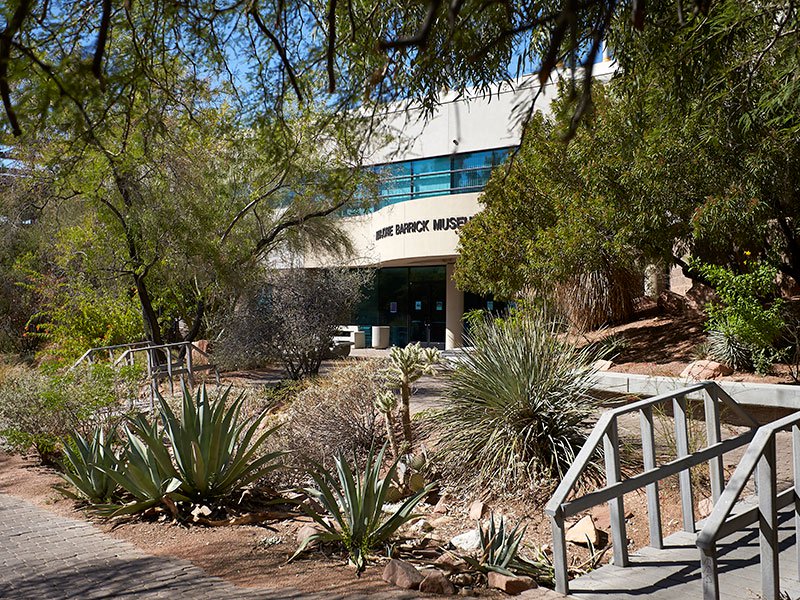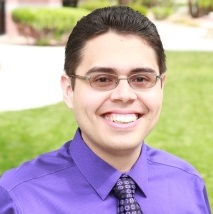
2020 NEVADA SPACE GRANT AND NASA EPSCoR STATEWIDE MEETING
April 3, 2020
University of Nevada, Las Vegas
Marjorie Barrick Museum of Art
Update as of 3/12/2020: Following NSHE plans for the novel coronavirus (COVID-19), we have decided to postpone the April 3 Statewide Meeting. We will be in touch soon about a new date for the meeting.
We understand and share the concerns regarding novel coronavirus (COVID-19). After discussions, we have decided to proceed with the meeting. We will provide hand wipes and tissues for participants. We are closely tracking information and following guidance released by the Centers for Disease Control (CDC). In addition, American Association of State Colleges and Universities (AASCU) has compiled a resources page. For more reliable information on the coronavirus, please read this Harvard Health Blog.
Welcome
The 2020 Nevada Space Grant and NASA EPSCoR Statewide Meeting will be held April 3, 2020 at the University of Nevada, Las Vegas, in the Marjorie Barrick Museum of Art.
The Statewide Meeting will include oral and poster presentations featuring research results of Nevada NASA EPSCoR and Nevada NASA Space Grant funded projects as well as a keynote address. The objective of this meeting is to share Nevada NASA research findings and outcomes, stimulate collaborations and discussions and plan for upcoming activities.
Attendees
Attendees will include all individuals who have received NASA research project awards from the Nevada NASA Space Grant and Nevada NASA EPSCoR in 2019 and 2020 as well as affiliates and advocates of the programs. All Nevada NASA project faculty and students, who are able, are expected to attend. Registration is required by March 20, 2020.
Travel Information
Due to budget limitations we will not be able to fund anyone’s travel expenses to Las Vegas. Please plan accordingly.
April 3: Full day meeting
Draft Agenda
7:30am
Registration and Hot Breakfast
8:15 – 8:25am
Welcome Remarks
8:25 – 9:15am
Keynote Talk: TBD
9:15 – 10:15am
Oral research presentations (12 min talks with Q&A)
10:15 – 10:30am
Break
10:30am – 12:00pm
-Research Development Speed Meetings
-Student Workshop: What is Graduate School All About? (System Computing Services, SCS 102)
12:00 – 1:00pm
Lunch and networking
1:00 – 2:00pm
STEM Education Mixer: David James build project
2:00 – 2:45pm
Oral research presentations (12 min talks with Q&A)
2:45 – 3:00pm
Student Poster 30 sec Oral Introductions
3:00 – 4:00pm
Break and Student Poster Competition Session
4:00 – 4:30pm
Workshop: How to Prepare Competitive Proposals for NASA – Dr. Eric Wilcox (DRI)
4:30 – 5:15pm
-NV Pathways to Success: Overview of NVSGC and NASA EPSCoR, Solicitation schedule; Progress & brainstorming to improve NV NASA Programs
-Poster award presentation
5:15pm
Farewell
Registration is required. Please register by March 20, 2020.
Make sure to upload a completed NASA Media Release as part of your registration.
Student Poster Presentation Abstract/Title submissions are due March 20, 2020.
All students participating in research funded by the Nevada Space Grant are strongly encouraged to attend the annual meeting and provide a research poster presentation. A poster session and competition will be held on Friday, April 3 so that students may share their research with everyone in attendance.
Eligibility: Students currently enrolled within a Nevada institution of higher education are eligible to participate in the poster competition. This poster session is limited to 25 entrants.
Poster Setup
Annual Meeting
Poster Competition
Poster Break Down
Noon
8:15am – 5:15pm
3:00 – 4:00pm
5:30pm
Poster Format and Abstract Guidelines
Format
All posters should be 36” X 48” and should include the information below. Students should bring their posters with them on April 3 and take them down after the poster competition. Wall space and materials will be provided in order for students to display their posters.
Title: Include a banner frame clearly stating the title of the poster, your name, your mentor(s) name, institution, and department. Be sure to include the Nevada NASA Space Grant Consortium logo and the logo of your institution.
Overview: Clearly articulate what you did, how you did it, why you did it, and what it contributes to your field and the larger field of human knowledge.
Introduction: Specify the main argument of your study, provide an overview of what you did, the evidence that supports that argument, and point out the significance and value of the research. Be succinct in this one-frame element.
Method: Illustrate how you conducted your project.
Results (If applicable): Indicate what your research has revealed.
Conclusion: Include an explanation of the ways the results satisfy the research objective. Illustrate how your findings impact scholars in your field and members of the broader intellectual community.
Poster Abstract Preparation Guidelines and Submission: All confirmed participants must upload a final poster abstract by March 20, 2020. Abstracts should be single-spaced, written in Times New Roman, 12-point font with a maximum word count of 300. Participants must include the project title, authors and institution in the submission headline. The body of the abstract should describe the background and intent of the research, methods, discussion of relevance to NASA missions, and research results. If results are not yet achieved, students may instead summarize future direction. Please note that failure to submit an abstract by the required date will result in disqualification from the competition.
Poster Session and Judging: Judges will evaluate posters based on overall poster appearance, technical content and student’s response to judge’s questions. (See Poster Evaluation Criteria form for more information.) The top 3 competitors will be awarded a prize. All competitors will receive a token of appreciation. The competition will be held Friday, April 3, 2020 from 3:00-4:00 p.m. Winners will be announced at the end of the meeting.
NEVADA NASA SPACE GRANT Acknowledgement: (MUST BE INCLUDED ON YOUR POSTER)
Full Support: “This material is based upon work supported by the National Aeronautics and Space Administration under Grant No. NNX15AIO2H.”
Partial Support: “This material is based upon work supported in part by the National Aeronautics and Space Administration under Grant No. NNX15AIO2H.”
Project incomplete?
If you have any preliminary results, use them as examples of the kind of results you hope to obtain. Discuss the significance of these results.
If you don’t have any preliminary results, you can focus on projected results: what do you think you might find when your results are complete?
Whether you have complete, partial, or only projected results, keep in mind that your explanation of those results—their significance—is more important than the raw results themselves.
Faculty Oral Presentation Abstract/Title submissions are due March 20, 2020.
All Nevada faculty funded by the Nevada NASA Space Grant Consortium and Nevada NASA EPSCoR are strongly encouraged to attend the annual meeting and provide an oral research presentation. An oral research presentation session will be held on Friday, April 3 so that faculty may share their research with everyone in attendance.
Eligibility: Faculty funded by the NVSGC and/or Nevada NASA EPSCoR during the 2019 or 2020 calendar years are eligible to participate in the oral research presentation session. This oral presentation session is limited to 7 slots with a maximum duration of 12 minutes each.
Abstracts and Headshot Due
Friday, March 20, 2020.
Word count limit: 300 words.
Annual Meeting Begins
Oral Research Presentations (12 min talks with Q&A)
Annual Meeting Concludes
8:15am
9:15 – 10:15am
and 2:00 – 2:45pm
5:15pm
Oral Presentation and Abstract Guidelines
Format
All abstracts should be a maximum of 300 words. Oral presentations should be accompanied by PowerPoint slides. Access to a laptop and overhead projector will be provided for all the presenters.
Title: Include an introductory slide clearly stating the title of the presentation, your name, institution, and department. Be sure to include the Nevada NASA Space Grant Consortium logo and/or the Nevada NASA EPSCoR logo(s) and the logo of your institution.
Introduction: State research goal, knowledge gap your research fills and how the research advances NASA, Nevada, and/or NSHE goals
Methods: Brief description of methods used
Results: What were your major findings? Challenges? What did you learn?
Outcomes: What publications, proposals, presentations resulted from your work?
Impacts: How has your work contributed to knowledge in engineering/science/education and society?
Oral Presentation Abstract Preparation Guidelines and Submission: All confirmed participants must upload a final poster abstract by March 20, 2020. Abstracts should be single-spaced, written in Times New Roman, 12-point font with a maximum word count of 300. Participants must include the project title, authors and institution in the submission headline. The body of the abstract should describe the background and intent of the research, methods, discussion of relevance to NASA’s strategic research plan, and research results. If results are not yet achieved, researchers may instead summarize future direction.
NEVADA NASA SPACE GRANT Acknowledgement: “This material is based upon work supported by the National Aeronautics and Space Administration under Grant No. NNX15AIO2H.”
NEVADA NASA EPSCoR RID GRANT Acknowledgement: “This material is based upon work supported by the National Aeronautics and Space Administration under Grant No. NNX15AK48A.”
Project incomplete?
If you have any preliminary results, use them as examples of the kind of results you hope to obtain. Discuss the significance of these results.
If you don’t have any preliminary results, you can focus on projected results.
The Marjorie Barrick Museum of Art is easily accessed from the west side of the UNLV campus. Drive east on East Harmon Ave until the road enters the campus and terminates in a parking lot. The Museum will be on your right, next to a desert landscape garden.
View the location in Google Maps
Note: All buildings on the UNLV campus share the same street address, 4505 S. Maryland Pkwy, Las Vegas, NV, 89154. To find the Barrick Museum building, use the Google Maps link above.

Dr. Lynn Fenstermaker
Project Director
702-862-5412
lynn.fenstermaker@dri.edu

Gibran Chavez-Gudino
Research Administrator
702-522-7081
gchavez-gudino@nshe.nevada.edu
